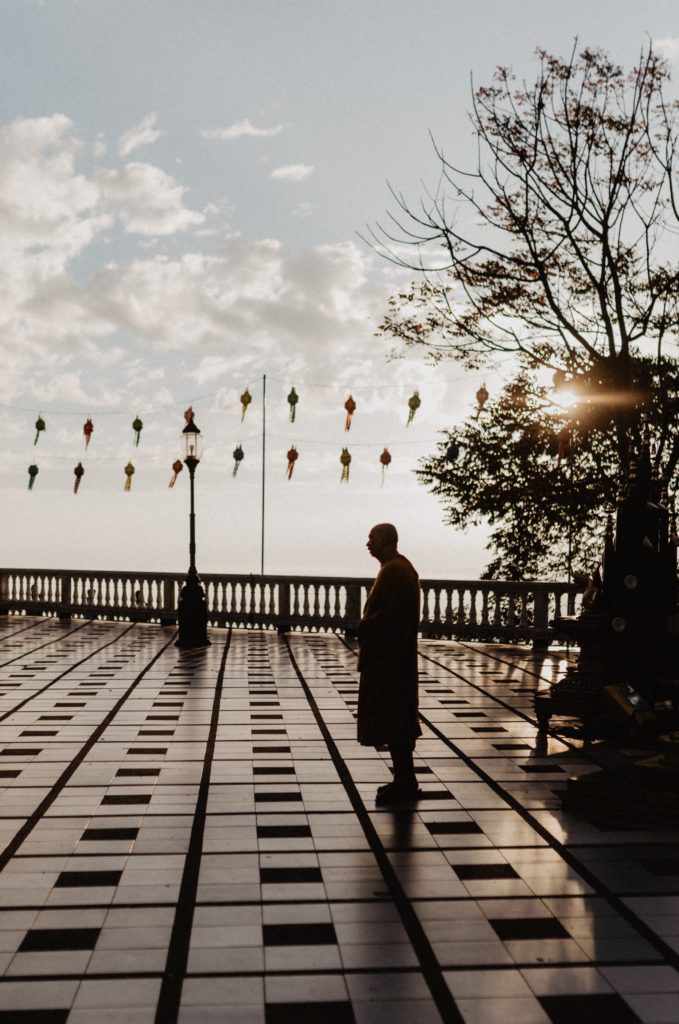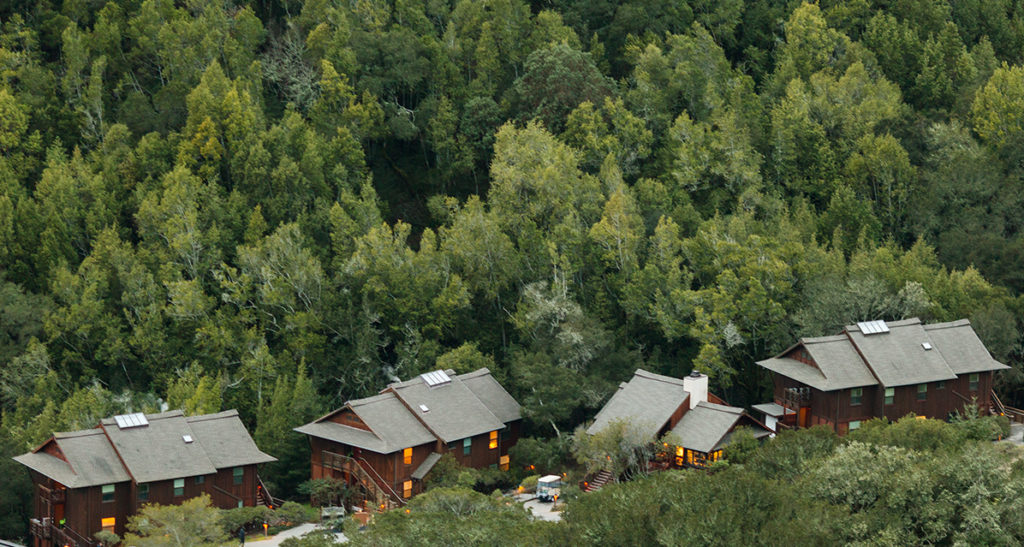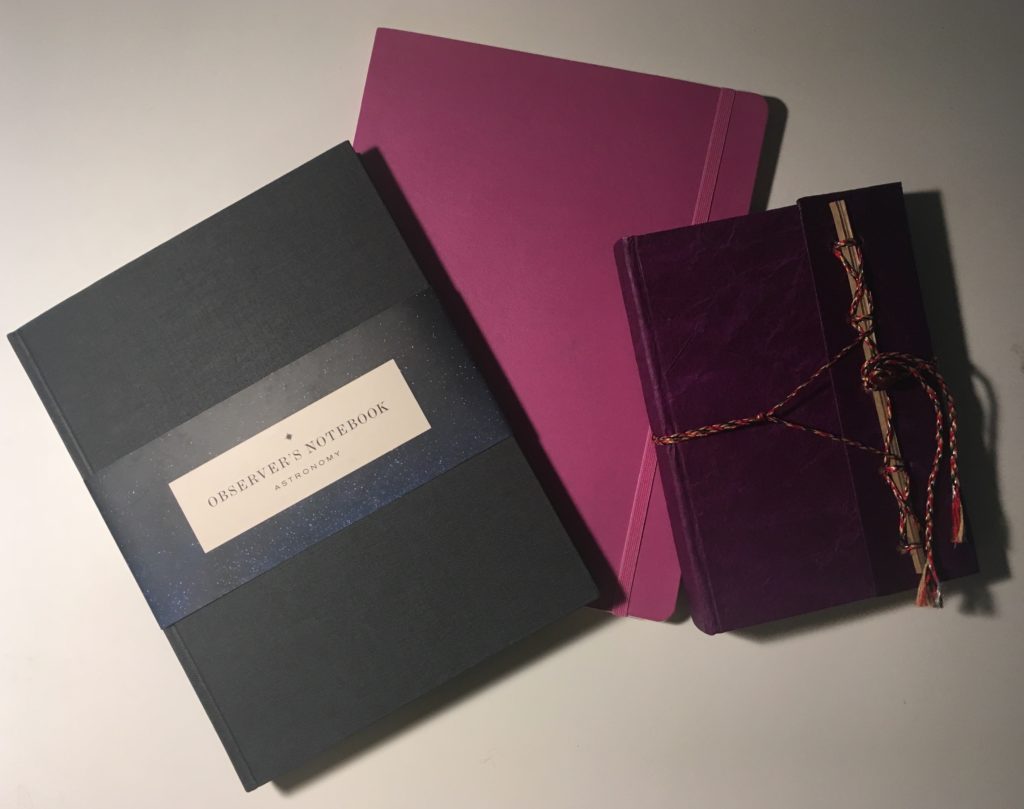Yes.
Coolness —
the sound of the bell
as it leaves the bell.

***
Tathatā is the Buddhist concept of “suchness.” It is very similar to suññatā (emptiness) but derives from saying “yes” to the universe. There is really nothing to hold on to, yet there is something going on. The quality of suchness is like the reflection of ultimate reality. It is a mirage that reflects something real out there; only in this case, the reality is not out there, but it is in our minds. Suññatā and tathatā—emptiness and suchness—are the two sides of reality that we experience in sense-based daily lives.
— from Atammayatā by Piya Tan
***
poem by Yosa Buson (1716-1784), translated from the Japanese by Robert Hass
Is There Something That’s Stopping You?

Another reflection from one of the sessions Phillip led at the Nature of Awareness retreat:
“Awareness bathes each of us in unconditional acceptance. It doesn’t move toward or away from any aspect of our personality. It is unconditionally accepting of whatever arises from this endless potential that a human mind is capable of creating.
“Awareness knows and accepts. It does not judge.
“Rest in awareness and let the multiplicity be known, and accepted. What somehow can not be accepted, hold with tenderness.
“Is there something that you believe about yourself that’s stopping you in your movement toward freedom? Something that’s blocking you? Freezing you?
“If there is, in this very moment, can you hold it in compassion? Can you let yourself rest in the knowing of this?”
Toward Which My Journey Tends

I leave Monday morning for the Nature of Awareness retreat at Spirit Rock (pictured above) and I won’t be posting again till the week of April 29.
To tide you over, I offer this excerpt from my favorite armchair travel guide — Invisible Cities, by Italo Calvino:
The Great Khan’s atlas contains also the maps of the promised lands visited in thought but not yet discovered or founded: New Atlantis, Utopia, the City of the Sun, Oceana, Tamoe, New Harmony, New Lanark, Icaria.
Kublai asked Marco: “You, who go about exploring and who see signs, can tell me toward which of these futures the favoring winds are driving us.”
“For these ports I could not draw a route on the map or set a date for the landing. At times all I need is a brief glimpse, an opening in the midst of an incongruous landscape, a glint of lights in the fog, the dialogue of two passersby meeting in the crowd, and I think that, setting out from there, I will put together, piece by piece, the perfect city, made of fragments mixed with the rest, of instants separated by intervals, of signals one sends out, not knowing who receives them. If I tell you the the city toward which my journey tends is discontinuous in space and time, now scattered, now more condensed, you must not believe the search for it can stop. Perhaps while we speak, it is rising, scattered, within the confines of your empire; you can hunt for it, but only in the way I have said.”
Already the Great Khan was leafing through his atlas, over the maps of the cities that menace in nightmares and maledictions: Enoch, Babylon, Yahooland, Butua, Brave New World.
He said: “It is all useless, if the last landing place can only be the infernal city, and it is there that, in ever-narrowing circles, the current is drawing us.”
And Polo said: “The inferno of the living is not something that will be; if there is one, it is what is already here, the inferno where we live every day, that we form by being together. There are two ways to escape suffering it. The first is easy for many: accept the inferno and become such a part of it that you can no longer see it. The second is risky and demands constant vigilance and apprehension: seek and learn to recognize who and what, in the midst of the inferno, are not inferno, then make them endure, give them space.”
The Very Essence of Being Conscious

Yesterday I discovered that — at long last!!! — the rest of the talks Ajahn Sucitto gave at the November 2018 retreat have finally been posted! Turns out, the timing is perfect because the first talk I listened to picked right up on the theme we’ll be exploring at the Advanced Practitioner Retreat in April on the Nature of Consciousness, which I posted a bit about yesterday.
Here’s an excerpt from Sucitto’s talk:
“Just to differentiate ‘mind consciousness’ (mano viññana) from ‘mind’ (citta). Sometimes these two are conflated — and it’s up for you to judge — but I myself would say that, although they certainly operate together, they’re two different aspects of a process.
“Citta [mind] is a sensitivity. Mano viññana [mind consciousness] is a function.
“Citta is a series of potentials and potencies and influences and tentative intentions and confusions and joys. And all of them held in a kind of non-formulated state. All wavering — the possibilities for good and for bad. It’s like something that hasn’t really crystallized.
“Citta is constantly affected. Affected by inclinations that can arise. Affected by fear, love, joy. It’s wavering. And then it can crystallize and act. When it seizes on something, focuses on it, holds it firmly, then mano viññana comes in and you’ve got mental kamma. Then this begins to generate a form. A self. Or an entity of some kind. Or a quality, that’s fixed, established. Even though it’s wavering, it’s got a certain trajectory to it. And that trajectory, as one thinks, speaks, acts upon it — generates a ‘person’ moving forward in time….
“Citta is the sensitivity — you could say it’s the very essences of being conscious. That trembling, sensitive alertness. Awareness.
“And you notice just how rippling that can be. And as you contemplate, how it can be smoothed and steadied and gladdened and strengthened. And the requirement for that, so it doesn’t just — like mercury — spill down the nearest grooves.”
***
(The above begins at about the 18 minute mark on the tape and has been lightly edited. He’s speaking here to a small group of experienced meditators near the end of an intensive, month-long retreat. So it’s dense. And full of Pali terms. But if you’re up for it — it’s so worth it. The title of the talk is Resetting Your World. Listen here.)
The Fundamental Quality of Knowing

Part of our homework for the first session of Spirit Rock’s Advanced Practitioner Program, which begins April 15, is to read and reflect on a selection of teachings from the Thai Forest tradition on the Nature of Consciousness — which I find quite provocative and totally fascinating.
I especially love this excerpt from Straight from the Heart, by Ajahn Maha Boowa:
Citta is the mind’s essential knowing nature — the fundamental quality of knowing that underlies all sentient existence. The true nature of the citta is that it simply knows. There is no subject, no object, no duality; it simply knows. The citta does not arise or pass away; it is never born and never dies.
When dukkha completely stops, nothing remains. All that remains is an entirely pure awareness; it is the purity of citta. If you want, you can call it: Nibbana.
Exploring the Nature of Mind
So at last we begin on Spirit Rock’s Advanced Practitioners Program, which kicks off with a 9-day retreat starting April 15 on the Nature of Awareness, taught by Phillip Moffitt, Guy Armstrong, Susie Harrington, and Brian Lesage.
I know we’ve begun, because I’ve just received the very first homework assignment!
Here’s what they say:
“The APP program is designed for practitioners who already have a strong connection to the Dharma and are looking to deepen that connection. In light of this, we invite you to take some time to reflect on your current connection to the Dharma in these particular ways:
- How has your practice transformed your life and the communities you live in so far?
- How is your practice connected with the larger context of issues happening within our society and the world?
- What continues to motivate you and inspire you to practice?
- What are your aspirations for this APP program?
“For our first retreat, we will be offering different teachings on how to understand the nature of mind. To prepare for the retreat, we invite you to reflect upon two different ways of understanding the nature of mind — or more precisely, the nature of consciousness — that are found in Theravada… ”
***
The suggestion is that we write our responses in a journal. And so it begins.
But first — I have to decided on the right journal!
(Ah yes. Already an exploration into the nature of this particular mind.)
Stay tuned.
YAY!!!
My DPP and CDL dharma buddies Carolyn, Alice, Helen, and I (and probably others who I haven’t heard from yet) all got accepted into the next cohort of Spirit Rock’s Advanced Practitioner Program (APP2).
I AM SO PSYCHED!!!
As posted on Spirit Rock’s website:
“APP2 is intended for senior students of the Dhamma who want to explore the liberation teachings of the Buddha through practice, study, inquiry, and interactive exercises. It is a year-long program consisting of three retreats and is intended for those who have completed programs like Spirit Rock’s Dedicated Practitioners Program (DPP), Community Dharma Leader Program (CDL), Heavenly Messengers (HM), or an equivalent.”
The retreats are:
* Nature of Awareness, April 15 – 23, 2019 (8 nights), led by Phillip Moffit, Guy Armstrong, Susie Harrington, Anushka Fernandopulle, Brian Lesage with Dawn Scott assisting.
“Awareness is the heart of sentient life, the central faculty that reveals the phenomena of our experience. Usually, in both meditation and daily life, we pay most attention to phenomena and less to awareness itself. This retreat is an opportunity to focus on the nature of awareness and to explore this mysterious, innate capacity for knowing. This practice can open the door to emptiness, profound understanding and great freedom.”
* Emptiness and Liberation, November 12 – 20, 2019 (8 nights), led by Gil Fronsdal, Susie Harrington, JoAnna Hardy, Brian Lesage with Dawn Scott assisting.
“This retreat is a further development of a senior students retreat on Emptiness previously held at Spirit Rock. While retaining the teachings on emptiness, this retreat will add more direct pointing to the steps toward liberation as described by the Buddha as well as ancient and contemporary meditation masters. We will introduce and explore teachings and practices that lead to awakening through talks, readings, reflections, guided meditations, and group discussions.”
* Radiant Mind, Peaceful Heart, April 2 – 10, 2020 (8 nights), led by Venerable Bhikkhu Analayo, Guy Armstrong, Susie Harrington, Anushka Fernandopulle, Brian Lesage with Dawn Scott assisting.
“This third retreat of the program will focus directly on the topic and practices leading toward liberation. Joining the teaching team will be Venerable Bhikkhu Analayo, a foremost scholar and practitioner who will share through presentation and practice instructions, the Buddha’s instructions on Compassion and Emptiness, pointing to full liberation. There will also be interactive study and practice sessions throughout the week, with a period of intensive practice in the depth of the retreat. This retreat will include sessions on how to continue these practices and supporting each other once the program has ended.”
***
AWESOME!!!


